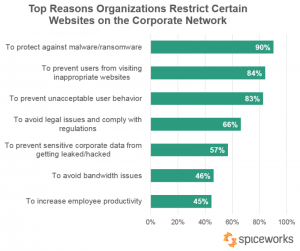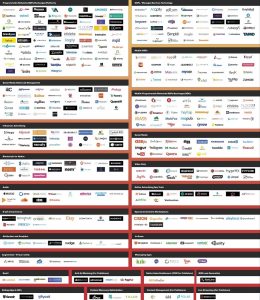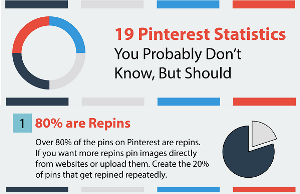For many clients, the financial services industry is deeply personal. After all, clients entrust financial advisors, investment firms, and banks to safeguard or grow their money.
Whether that money is slated for the down payment on a home, a child’s college education, or a dream retirement, the stakes remain high. A client’s choice of a financial advisor or institution may have a lasting impact on their ability to attain their financial goals.
Furthermore, many Americans still struggle with basic financial knowledge. That means that millions of Americans may make critical decisions about who should manage their money without fully understanding their options.
For those working in financial services sales, the situation presents a dilemma: How can they be persuasive when clients have limited knowledge of their service offerings? Part of the answer may be the use of a financial services CRM. By logging client data and interactions consistently, sales team members can better identify client needs and deliver information that is not only better-suited but more persuasive as well.
The value of client knowledge
As outlined above, the financial services industry differs from others. Consumers can try on shoes and assess them for style and comfort; they can determine independently whether they enjoy the programming of an expanded cable package.
Much like physicians or attorneys, financial services professionals are the trusted experts in their fields. Ultimately, a client may rely on perceived expertise or trustworthiness to evaluate a representative. Client knowledge, as a result, becomes vital—not just what to communicate but how and when to communicate it.
The manual management of client data risks overwhelming sales staff or leaving representatives, who field inquiries from prospective clients, uninformed. A financial CRM can manage input and retrieval of client data without requiring tedious upkeep. The result? The potential for tailored client-representative interactions that build the trust essential for closing a sale.
How a CRM organizes client data
The present-day CRM is an outgrowth of early customer contact lists and databases (and, in the predigital era, paper files). The CRMs available to modern businesses have made vast strides over earlier iterations. The concept of a “mobile CRM” with decentralized access has existed since 1999 when Internet access became more widespread. So what kind of information can a CRM house?
Client information. Client information is more than a name and a phone number. It can also include multiple contact points, such as an office and cellular phone, as well as demographic data, like age or gender. Detailed CRMs include notes from client interactions with any company employee. Lead scoring can help rank clients for sales staff to prioritize effort and guide interactions.
Internal information. Internal information can help track which representative is the primary point-of-contact for a given account. For managers, this data also provides insights into performance, such as progress toward individual sales targets. The segmentation of data enables managers to group all client–representative interactions and evaluate overall performance.
Account history. For existing clients, a CRM for financial advisors offers information about past account actions. This can help advisors navigate an account transition seamlessly. The information can also be valuable for managers and executives, who can estimate average account length and identify factors critical for client retention.
Connecting CRM data and sales
The use of a CRM, according to Salesforce research, dovetails closely with increased sales. Salesforce reports that a CRM can increase sales by up to 29 percent. However, an increase in sales is not the only improvement a CRM offers. Turning to Salesforce data once again, the research shows that sales productivity may rise by up to 34 percent through the use of a CRM, and the forecast accuracy of sales grows by some 42 percent.
The triumvirate of benefits improves more than just the bottom line. Increased sales productivity means sales staff spend more time on high-value tasks and less time entering or searching for client data. The increased productivity may also translate to happier sales staff. That can make the adoption of the new technology easier: The product is a CRM that team members enjoy using.
Growing a financial services business with a CRM
The broadly outlined benefits of a CRM apply to many industries. However, the financial services industry can benefit most from a subset of CRM offerings. Here are the four ways a financial services business can get more value—and generate more sales—with a CRM:
Know everything about the client when they call.
How does a financial services business differentiate itself for leads? Given many clients’ lack of knowledge about the intricacies of the financial services sector, a detailed list of processes or certifications may not be persuasive.
More opportunities may be found through immediate connections to clients’ past conversations and requests. A CRM can deliver that information to sales representatives who are away from their desks or any staff member fielding a call from the office.
Instead of struggling to recall details of past interactions or sifting through paperwork, those speaking with a client can focus on the client’s new questions or concerns. If the goal is to build trust with a client, an up-to-date, always-available data stream can go a long way.
Identify the key interactions that help build trust.
Over time, the aggregated data in a CRM for financial advisors can help uncover which interactions—calls, emails, letters, or face-to-face encounters—are most persuasive to leads. The ability to segment data means that managers can identify whether certain staff members excel or struggle with specific tasks. They can pass that data along to their team as best practices or individuals as opportunities for personal development.
By relying on CRM data, sales managers gain quantitative support for changes to internal procedures, which can help earn buy-in from representatives that otherwise may be reluctant to change their habits.
The same data can improve marketing practices to deliver higher value leads or better understand the right time to pass along a prospect. Objective data can be exceptionally valuable when offering feedback on creative decisions like copywriting or the design of marketing materials.
Discover the type of client that’s right for the organization.
Not every prospect will be the right fit for an advisory group or boutique investment firm. CRM data can help build a more robust profile of an ideal candidate. An organization can also learn more about what makes a lead more likely to become a sale, and what makes a customer more likely to remain a client.
The organizations that can identify the wrong type of client for their business can also exclude those prospects more quickly. Such advance insights can save marketing dollars and sales staff’s time. Further, they can reduce frustration and burnout as more leads align with company offerings and culture.
Find the right cadence of interaction to keep clients happy and loyal.
Many financial services businesses succeed by retaining clients for years or even decades. A sound investment strategy may carry a client from their first solid job through college-fund saving and retirement planning. To retain clients for such lengthy periods, financial advisors must understand how to sustain a relationship well after a prospect’s initial decision to become a client.
A financial services CRM can support those efforts in two ways. For one, the complete client history can help team members see the panoramic view of a client to meet client needs better. Secondly, the CRM data for long-standing clients can provide insights into which company actions increase retention rates. How often should a client be contacted? Which method of interaction helps a client feel valued and appreciated?
A CRM can help financial services businesses answer these questions with data instead of anecdotes.
Improved client service through improved client knowledge
Few industries require the client loyalty sought after in financial services. With client relationships that may span a generation, financial services professionals benefit from in-depth client knowledge. Though client knowledge has always been a part of client service, only a modern CRM can disseminate up-to-date knowledge to everyone involved.
A systematic approach for financial services sales can improve marketing efforts, sales productivity, and client retention efforts. Perhaps most importantly, the data points from a CRM can build client trust from an initial contact to years after the first agreement
Business & Finance Articles on Business 2 Community(72)








